Risks associated with Dementia Patient in Aged Care
VerifiedAdded on 2022/12/28
|12
|1017
|54
Presentation
AI Summary
This presentation discusses the risks associated with dementia patients in aged care, focusing on the issue of accidental falls among older adults with dementia. It highlights the increased vulnerability of older adults with dementia to falls and the resulting injuries. The causes of accidental falls, the role of aged care settings in fall prevention, and interventions for dysphagia are also discussed. Additionally, the presentation emphasizes the importance of fall risk assessment, primary healthcare and screening, and promoting healthy aging in dementia patients. Overall, staying in an aged care facility can help improve the quality of life for older adults with dementia and reduce the severity of the disease.
Contribute Materials
Your contribution can guide someone’s learning journey. Share your
documents today.
1 out of 12
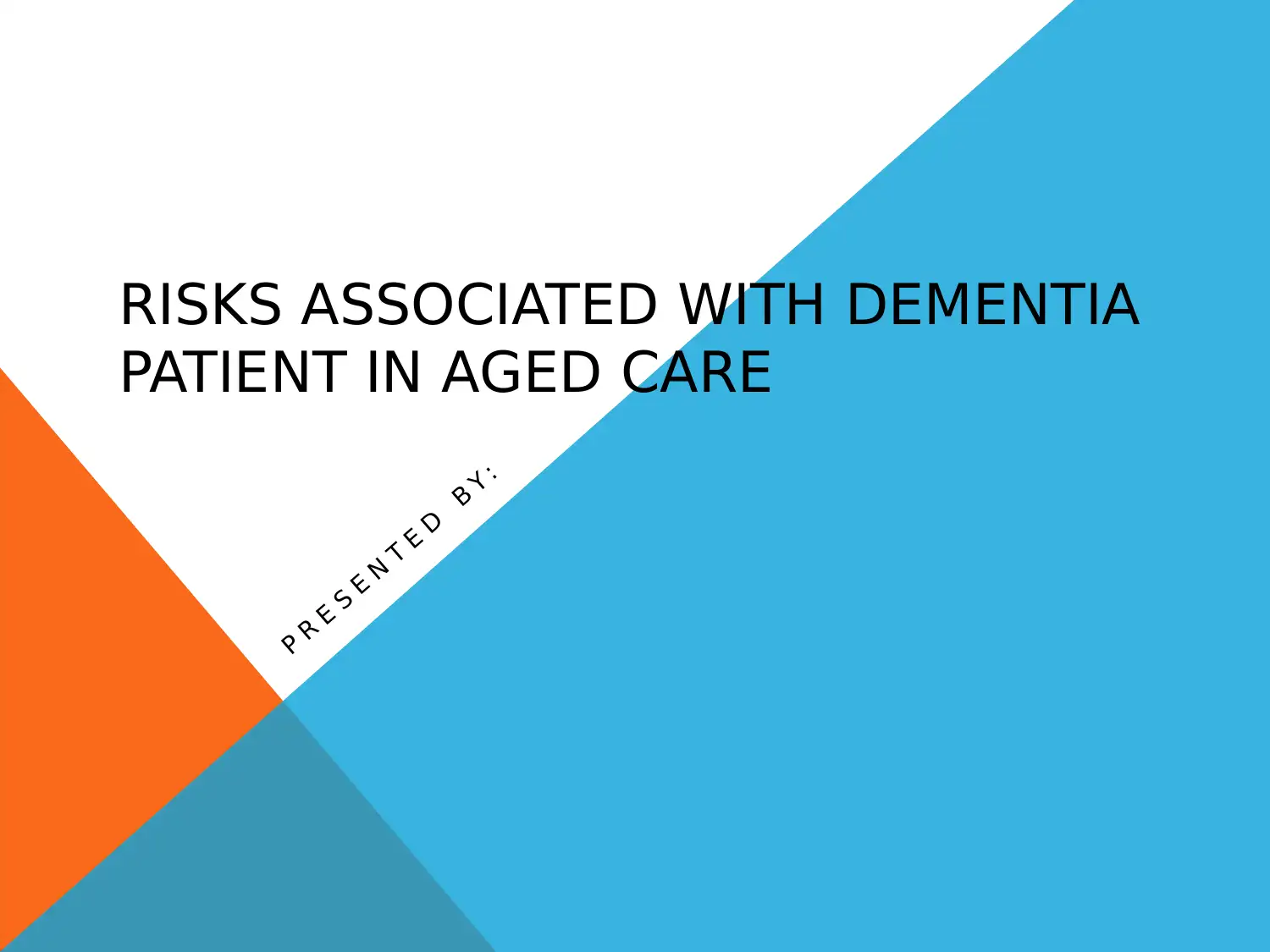
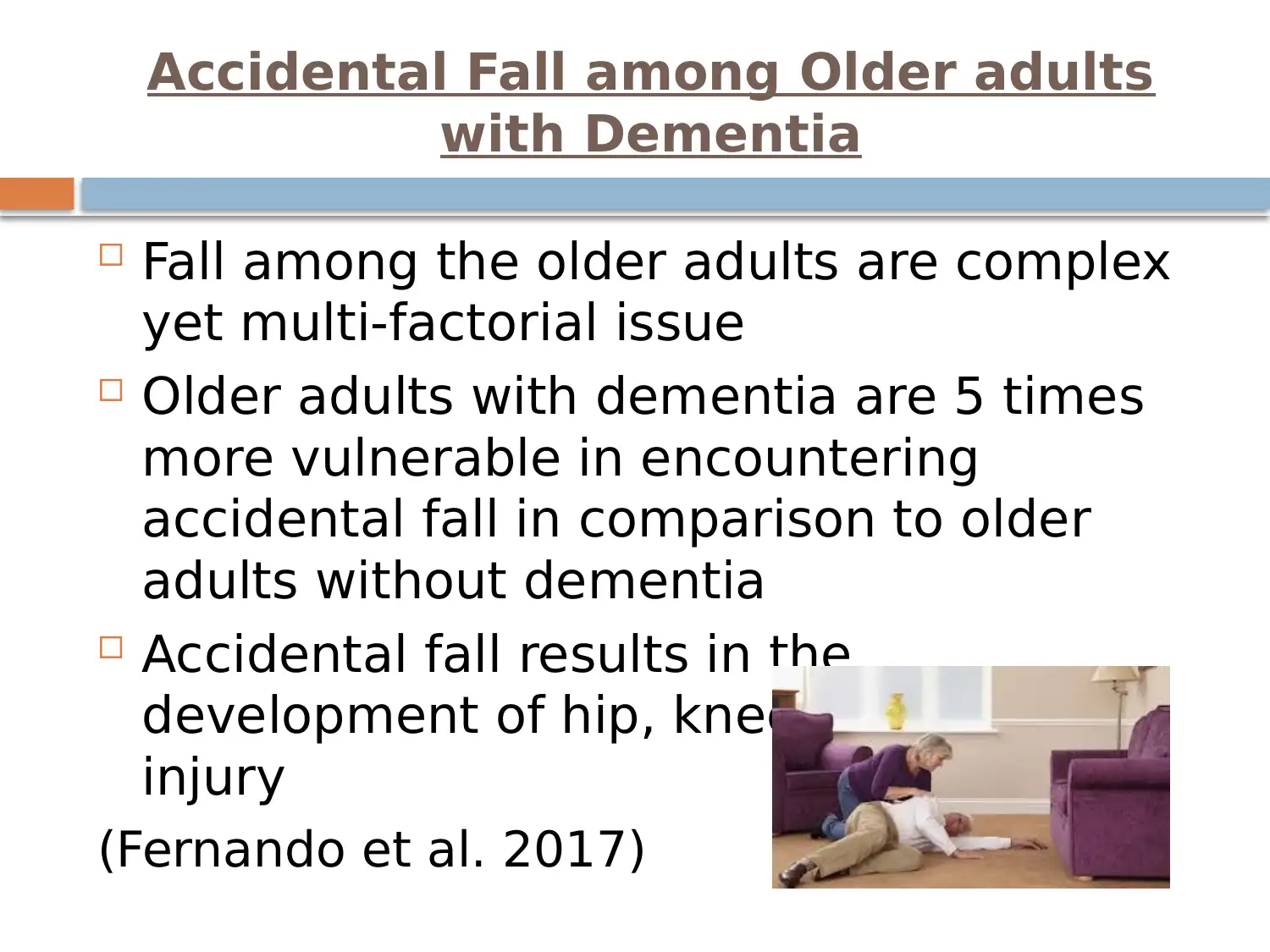
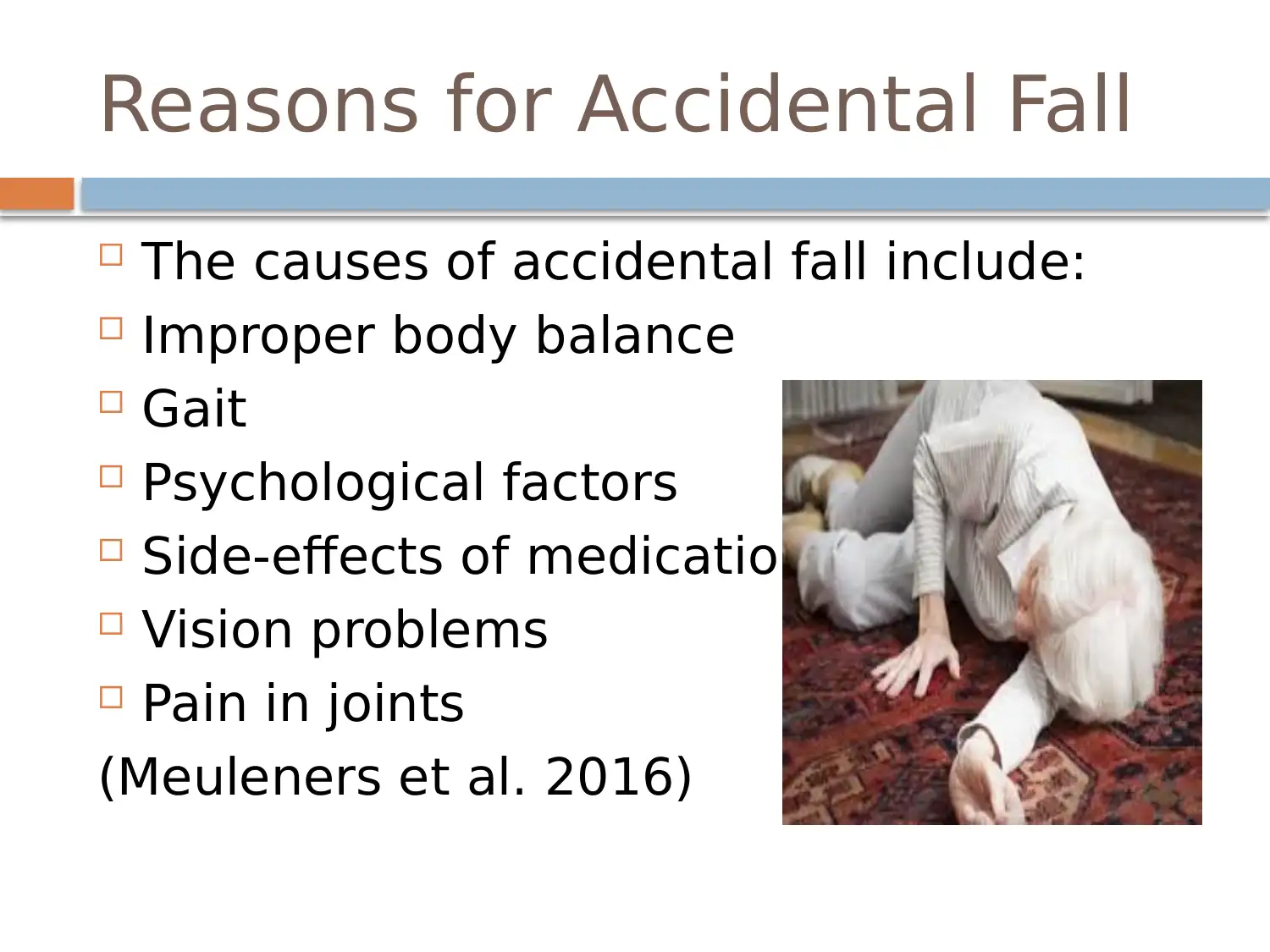
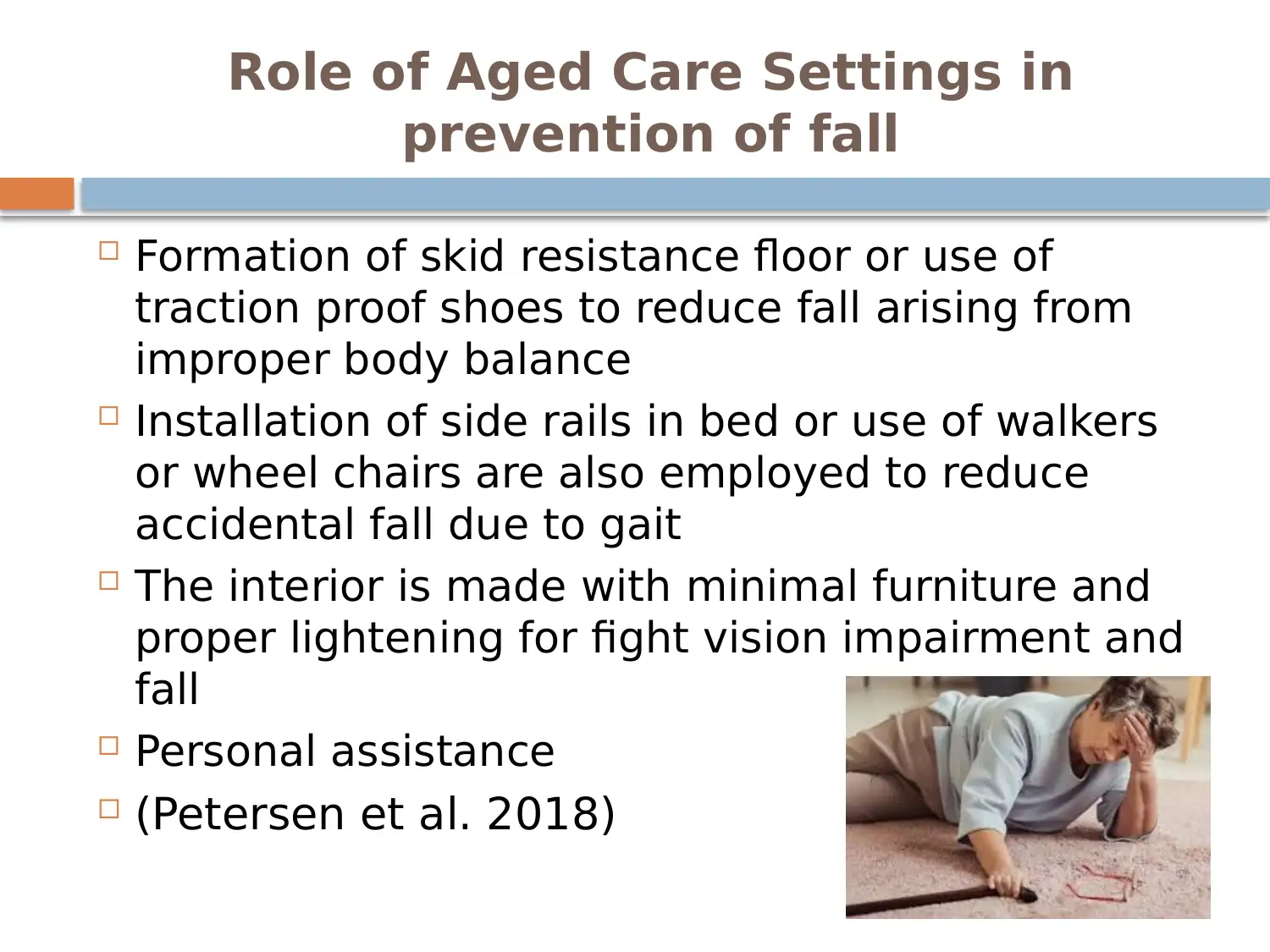
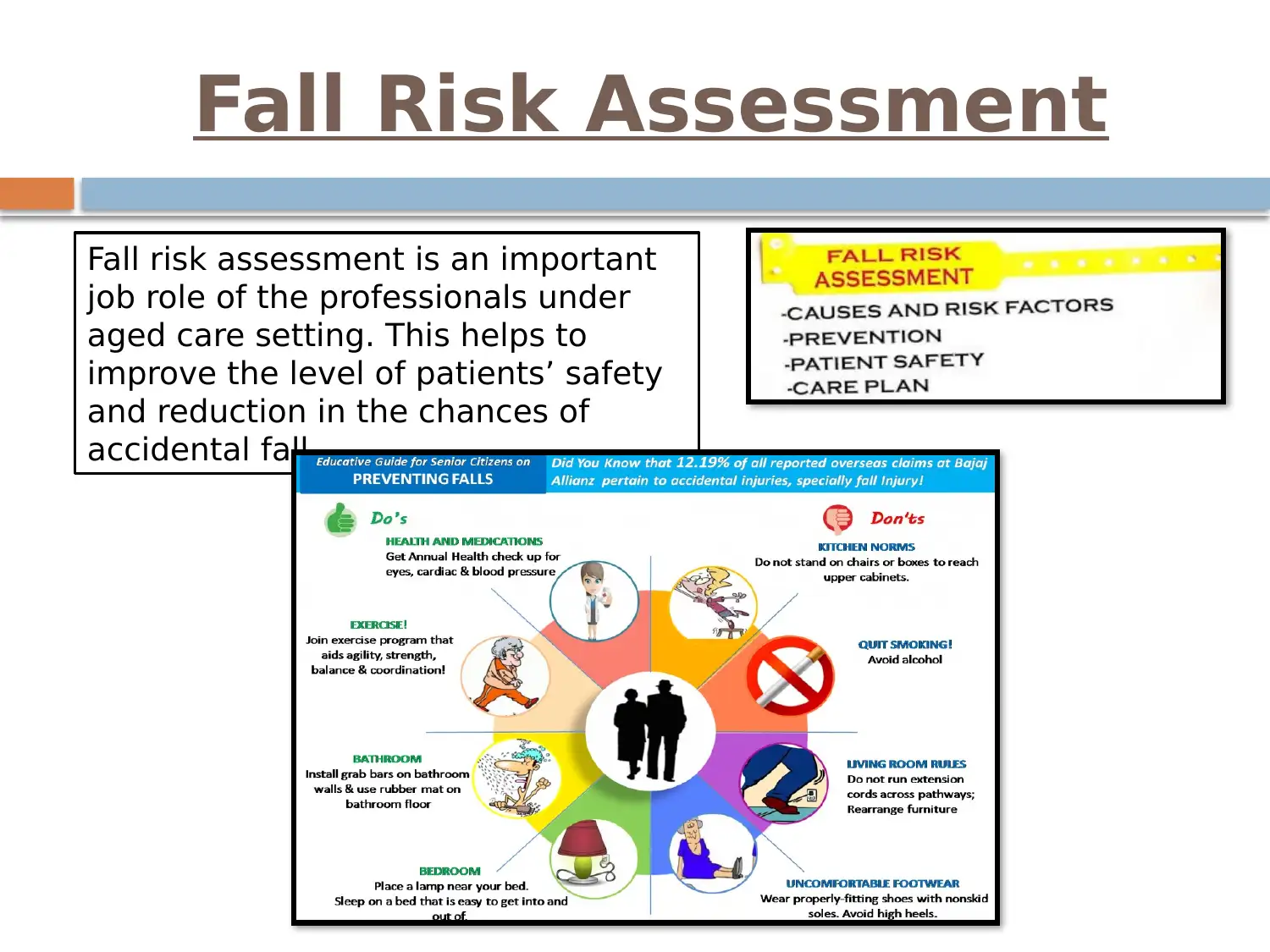
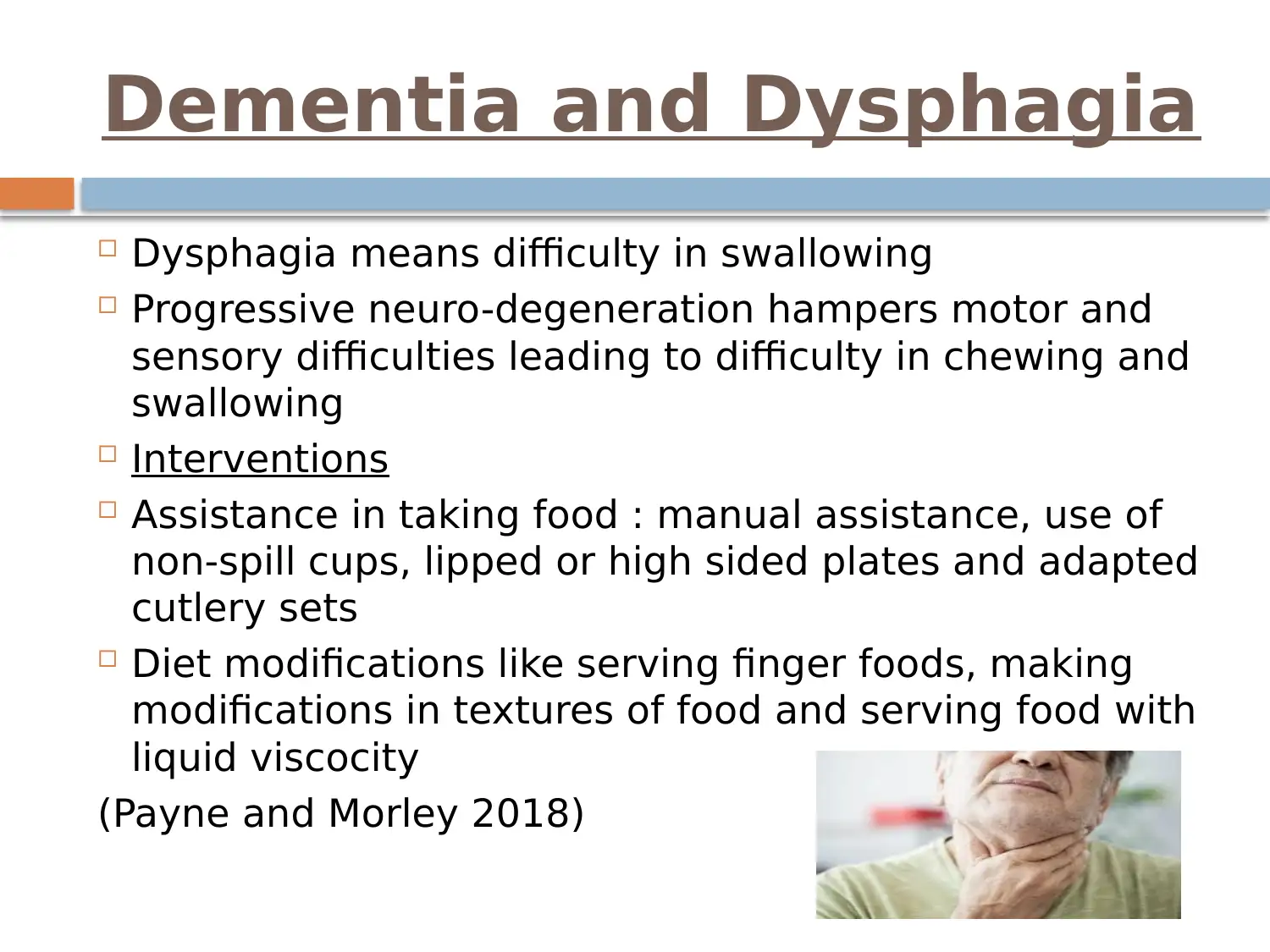
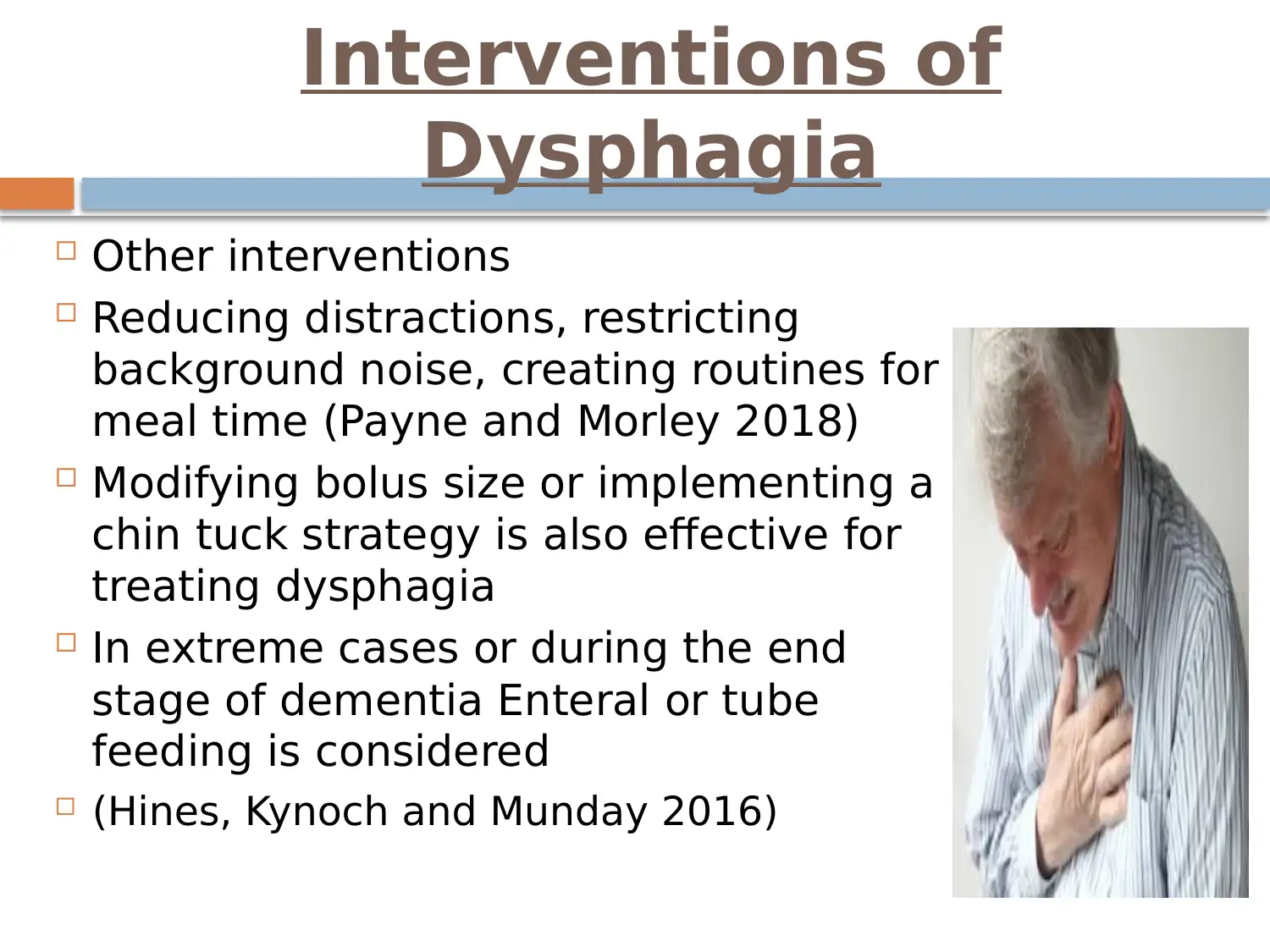
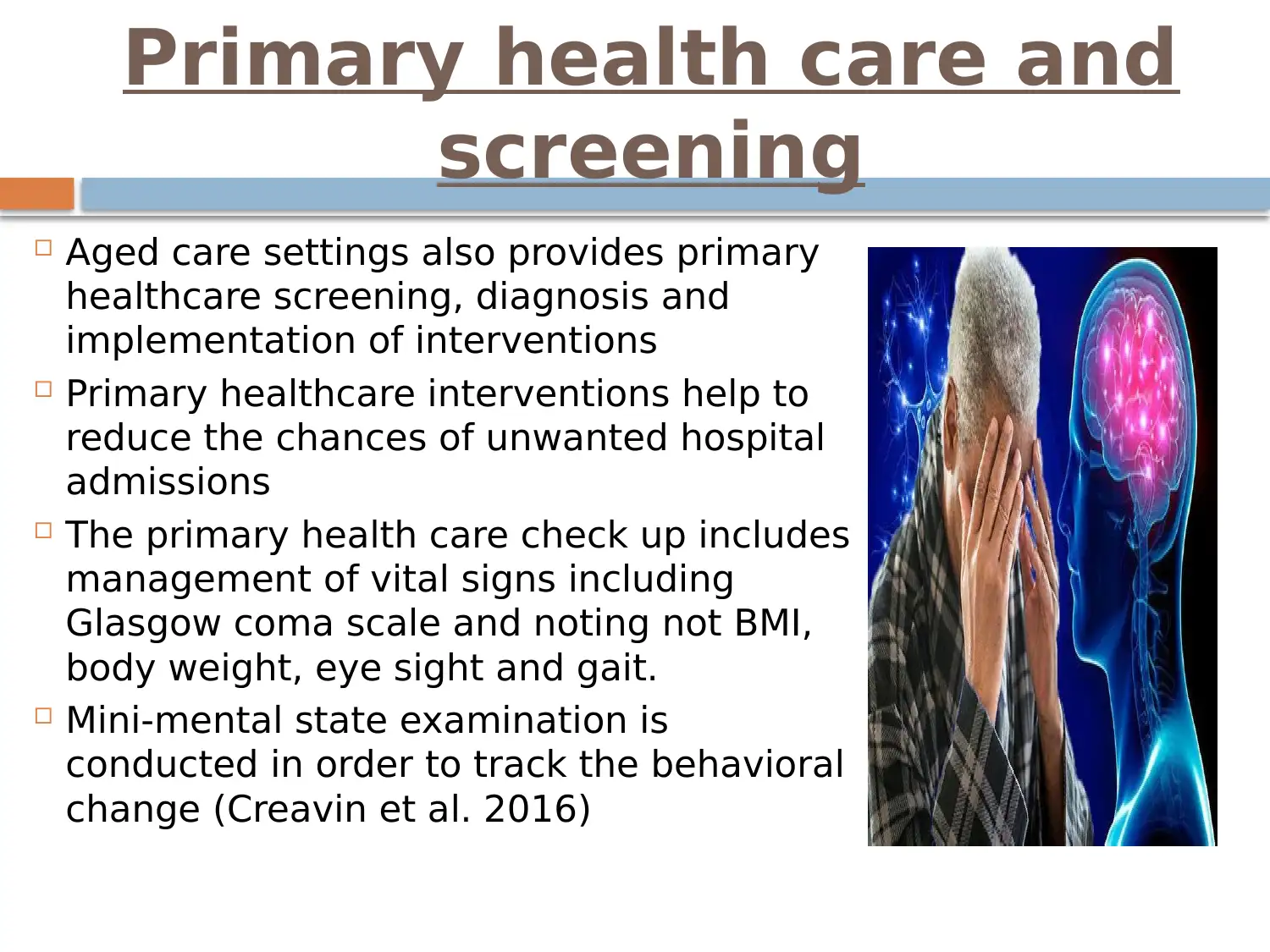
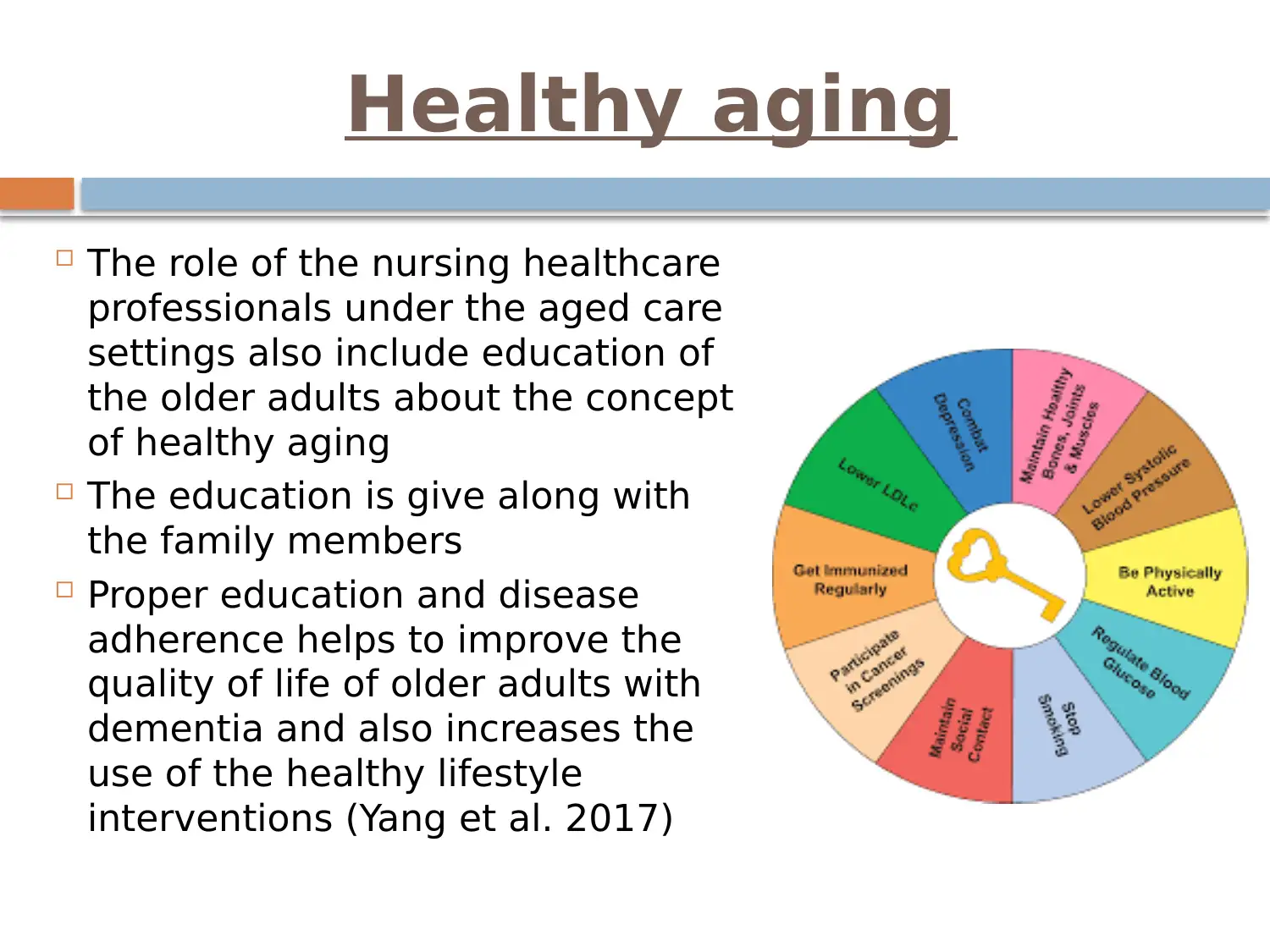
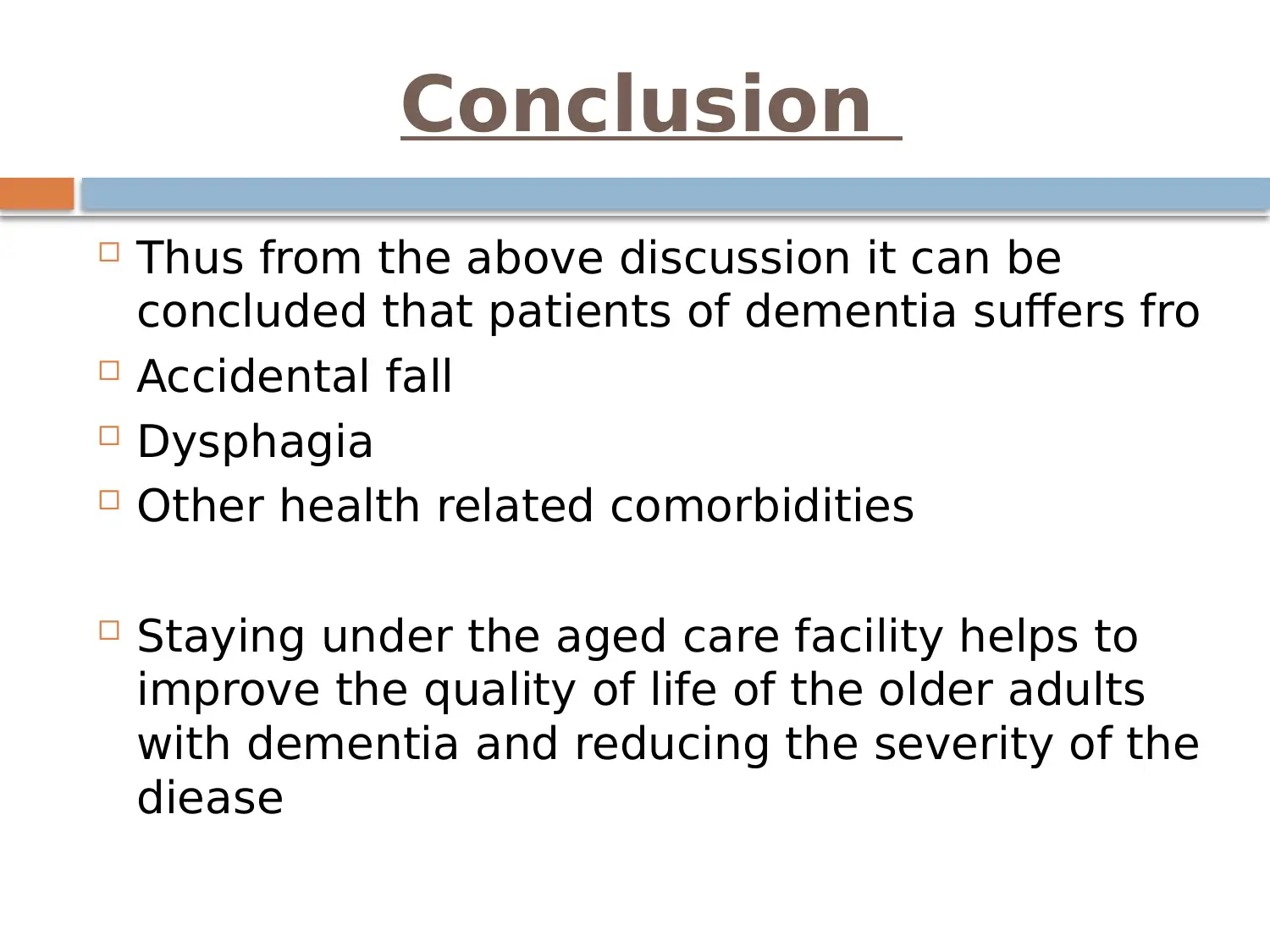
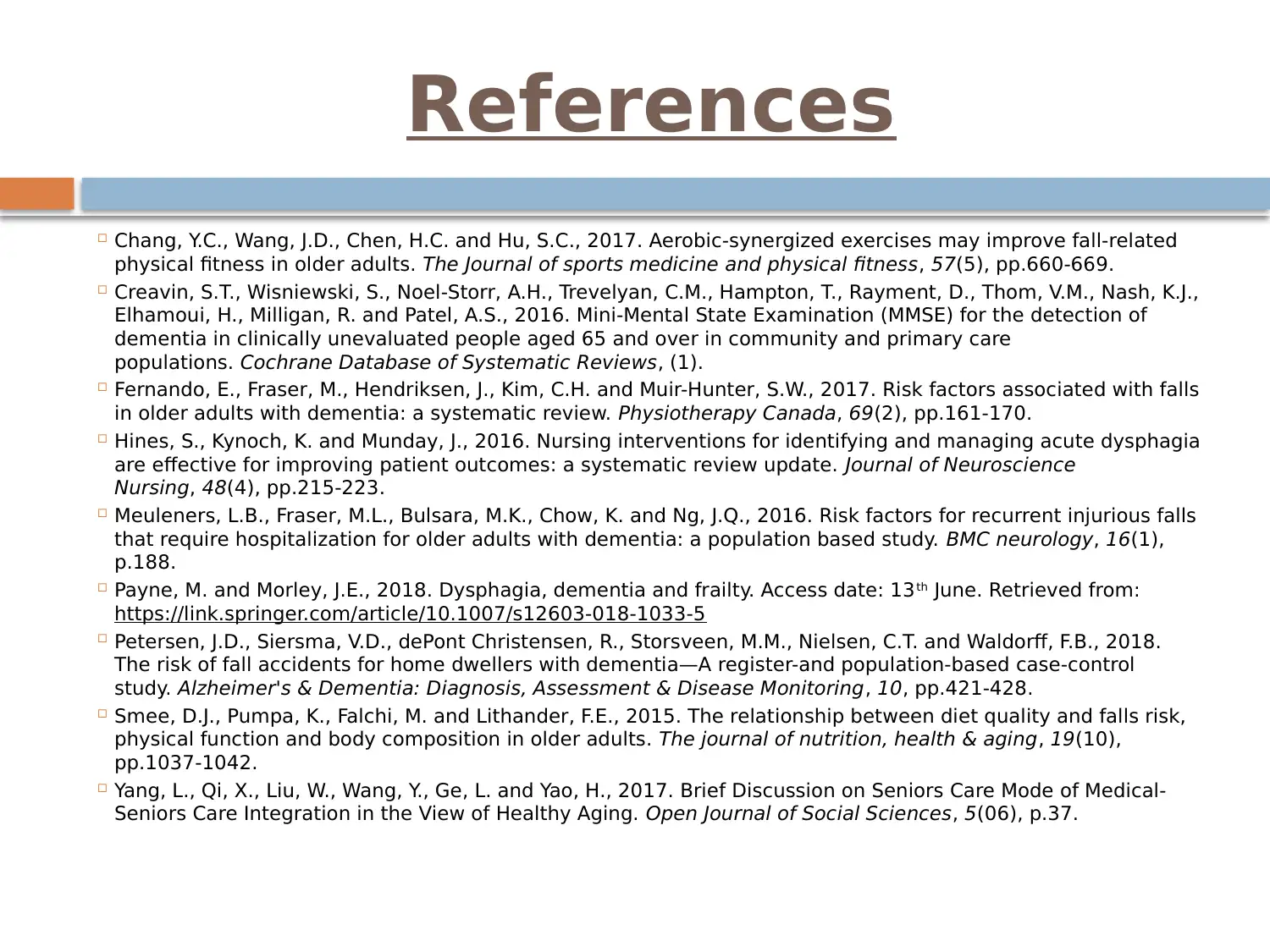







![[object Object]](/_next/static/media/star-bottom.7253800d.svg)